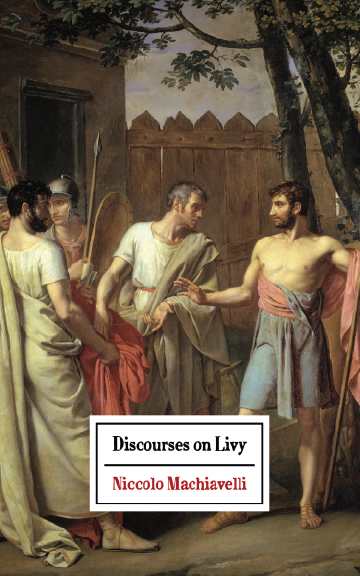Discourses on Livy
Discourses on Livy
Discourses on Livy by Niccolò Machiavelli, translated by Ninian Hill Thomson Published in 1531 after the author’s death, Discourses on Livy is a must-read for anyone interested in philosophical and politically historic works. Containing three books, each comprising 142 chapters, Discourses on Livy is not a light read, but it is a profoundly illuminating one. It has been hailed as perhaps the most important document in the establishment of modern republicanism. As an exploration of the intricacies and finer points of the Roman Republic, Discourses is hard to beat. The origins of cities, states, and laws are all covered, as are the wars and politics that defined the Eternal City. In each chapter, Machiavelli brings his great intellect and penetrating insights to bear on the nature and structure of Rome.
Those who have read Machiavelli’s most renowned work, The Prince, will be familiar with the painstaking research, attention to detail, and originality of thought that are the author’s trademarks. Machiavelli viewed history as a means to inform the present, not something that should be put in a glass box and simply studied for the sake of it. Discourses is as much a philosophical work as a historical one. Within its pages, Machiavelli engages the reader by establishing preconceived notions of progress and evolution.



